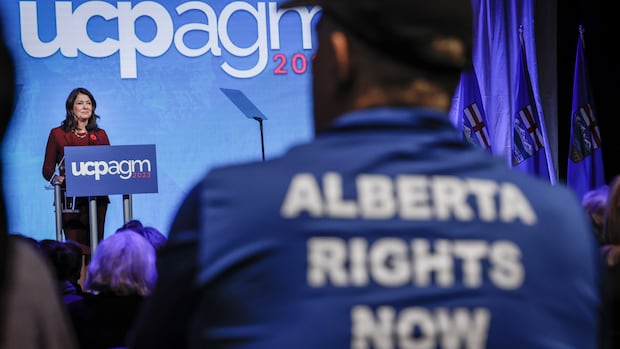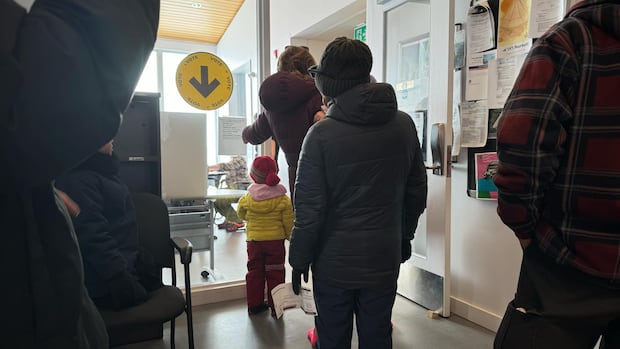Canadian researchers who track online misinformation and foreign interference are welcoming a new feature that reveals the location of an X account but warn that it still has glitches and its results should be taken with a grain of salt.
While revealing true locations has the potential to unmask fake accounts and foreign actors pretending to be Canadians to try to influence politics, they also warn that it could present a danger to people like dissidents by revealing their locations or the fact that they are using VPNs to communicate online.
On Friday, X, formerly Twitter, rolled out a new “about this account” feature which lists the geographic location of accounts. While those concerned with the spread of misinformation and disinformation on social media by bad actors had called on X to provide more transparency, the new feature appeared to catch many by surprise.
Reaction was swift and it set off a flurry of activity by some users in the U.S. and Canada to find accounts where the location didn’t match where they claimed to be based.
A number of influential accounts that support U.S. President Donald Trump’s Make America Great Again (MAGA) movement were listed as based outside the United States, in areas like Eastern Europe, Russia and Nigeria, leading to questions about whether the movement was being influenced or amplified by foreign actors.
Some of the accounts featuring pleas from families who said they were in Gaza, asking for donations to feed their starving families, were listed as being located in other countries like India.
Location mismatchesMismatches in location information have also been spotted in accounts commenting on Canadian politics. For example, one popular Conservative-leaning account with more than 150,000 followers is listed as being located in Italy. An account promoting Alberta sovereignty with 15,000 followers is listed as being located in Thailand.
Neither account has responded to questions from CBC News.
Two of five federal political parties as well as media organizations including the CBC are also listed as being located outside Canada. While the Conservative, Bloc Québécois and Green Party accounts are listed as being in Canada, the new location feature lists the Liberal Party and New Democrat accounts as being in the United States.
Lucy Watson, national director of the NDP, said the erroneous location appears to be the result of the NDP using a virtual private network (VPN), a technology that can secure a device's internet activity and mask its location.
“Our account is managed in Canada, not in the U.S.,” Watson said.
Liberal Party spokesperson Matteo Rossi directed the question to the company.
“That would be a question for X,” he said in an emailed response. “All Liberal Party social accounts are of course run from Canada.”
While several CBC accounts are listed as being located in the U.S., Chuck Thompson, the public broadcaster's head of public affairs, said “all of CBC’s accounts are proudly located and run out of Canada.”
“We are looking into how we can correct this inaccurate information.”
 The new 'about this account' feature on X shows the @CBC account as being based in the United States. A disclaimer pop-up indicates that this 'may not be accurate.' (X)
The new 'about this account' feature on X shows the @CBC account as being based in the United States. A disclaimer pop-up indicates that this 'may not be accurate.' (X)Officials for X have yet to respond to emailed questions for this story.
Experts say there are a variety of reasons why the new feature could list an account as being in another country — even when it isn’t.
Philip Mai, co-director of the Social Media Lab at Toronto Metropolitan University, said X is relying on IP addresses that have been associated with an account to determine its location.
An IP address is a unique identifier assigned to a device by the internet service provider, via the network's router.
“About this account is less accurate because it uses aggregated IP addresses, at least [that's] what they’re saying they’re doing, to share with the public where your account is based,” Mai said.
For example, Mai said his own account is listed as being located in Germany — a country he visited in September to conduct research.
In its help centre, X says it uses a variety of ways to determine location and if those don’t work, the setting will default to the U.S.
Needs time to improve: ExpertMai said the new feature comes after X had been under pressure to be more transparent amid concerns its platform was being used for foreign interference in politics.
“This is part of their evolving strategy to combat bot accounts, foreign influence operations and co-ordinated manipulation,” Mai said.
Mai said the new tool promises to be useful for researchers, although he predicted those who want to misrepresent themselves will quickly adapt.
“Overall, it’s a good thing. It just needs to have time to work itself out. But most of the players, the smarter ones, will simply pivot and basically roll with the punches here, and they will continue to do what they’re going to do.”
Mai said the new tool could also cause problems for those trying to cloak their location for their own safety.
WATCH | More about misinformation during election campaigns:Canada’s chief electoral officer is warning Canadians not to rely on their social media for information this election, as the risk of misinformation is more prominent than ever. CBC’s Farah Nasser breaks down how to spot fake and misleading election content.“VPNs are vital tools for activists, journalists and people living under repressive governments, allowing them to safeguard their privacy, avoid surveillance and protect themselves from retaliation," Mai said.
"Exposing their VPN use could inadvertently put these individuals in danger.”
Mika Desblancs-Patel, research engineer with the Media Ecosystem Observatory in Montreal, said increased transparency about what is happening on X is welcome.
“One of the toughest parts of working in this space is simply data access and having access to all the things that we need in order to make our work easier,” Desblancs-Patel said.
“This is not something that social media companies are happy to give.”
While the information at the moment appears to have some errors, Desblancs-Patel said it can help researchers catch accounts involved in foreign interference.
He said one example may be an account that his research found had participated in a suspected online misinformation campaign. That account, which posts about Canadian politics, is now listed as based in “East Asia & Pacific.”
However, Desblancs-Patel doesn’t yet know whether the new feature will be “a durable way” to expose them or whether those participating in foreign interference will start doing more to mask their locations.
In the end, Desblancs-Patel said it is important to think critically about what you see online.
“I would generally urge people to be cautious when drawing conclusions from this location data and treat it as another tool they can use to critically examine the content they're exposed to online,” he said.











